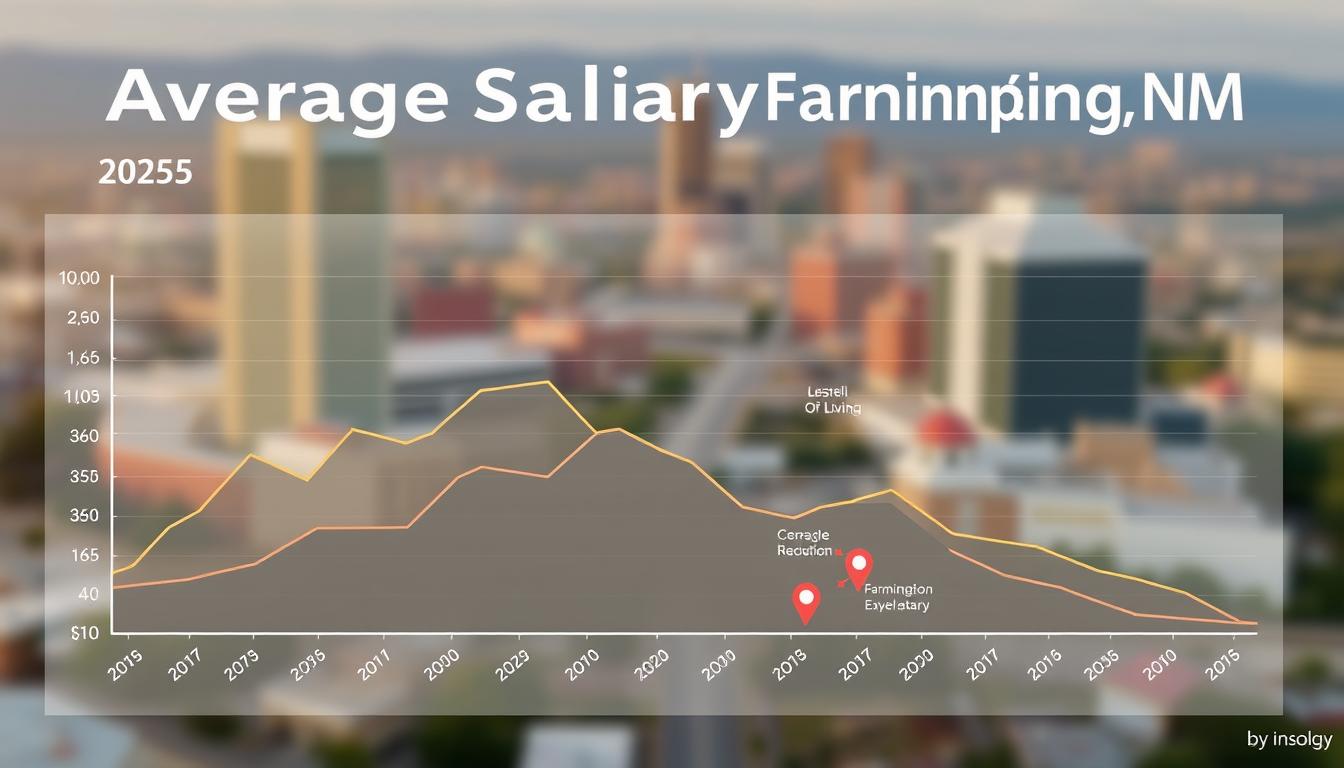Writing a stage manager resume can feel like an epic performance. Many challenges come into play, from highlighting the right skills to organizing various experiences effectively. Stage managers often find it difficult to convey the depth of their expertise on a single page. You juggle multiple responsibilities, and it’s hard to showcase them all in a resume format. You might have experience ranging from lighting to logistics, but how do you get it all down? Crafting a resume that stands out isn’t always easy, but it’s a crucial step to landing your next stage management gig. Luckily, with a bit of guidance, you can create a resume that truly captures your talents.
Key Takeaways
- Your stage manager resume needs to clearly show your ability to handle many tasks and keep things running smoothly backstage.
- Use specific examples of your work, like how you managed schedules or solved problems, to make your stage manager resume stand out.
- Always update your stage manager resume for each job application, focusing on the skills and experiences that matter most for that role.
1. Stage Manager Resume Samples

So, you’re putting together your stage manager resume? Awesome! Let’s look at some examples to get those creative juices flowing. It’s always helpful to see what works (and what doesn’t) before you start wrestling with your own document. Remember, the goal is to show off your organizational skills and experience in a way that grabs the reader’s attention. RoboApply can help you tailor these examples to fit your unique background.
A strong resume is your ticket to landing interviews. Make sure it’s clear, concise, and highlights your most relevant achievements. Think of it as your personal advertisement – you want to make a great first impression.
Here’s what we’ll cover:
- Different resume formats that work well for stage managers.
- How to highlight your experience, even if it’s varied.
- Ways to showcase your skills and certifications.
Let’s dive in and see some examples that can help you craft a winning stage manager resume.
2. Stage Manager Resume Format

Choosing the right format for your stage manager resume is important. It’s not about being overly creative; it’s about making sure the information is easy to read and relevant to the job. Recruiters care more about legibility and how well your application matches the role.
For a stage manager resume, the chronological format is often the best choice. This format highlights your work experience in a clear timeline, which is something employers in the industry usually prefer. It allows them to quickly see your career progression and the types of productions you’ve worked on.
Here’s a breakdown to help you choose the best format:
- Chronological: Lists your work experience in reverse chronological order, starting with your most recent job. This is great if you have a consistent work history.
- Functional: Focuses on your skills rather than your work history. This might be useful if you have gaps in your employment or are changing careers, but it’s generally not recommended for stage managers.
- Combination: Blends the chronological and functional formats. This allows you to highlight both your skills and your work experience. It can be a good option if you want to emphasize specific skills that are relevant to the job.
Remember, the goal is to make it easy for the recruiter to see why you’re a good fit for the job. Choose the format that best showcases your strengths and experience.
When it comes to fonts, keep it simple and professional. Avoid anything too fancy or difficult to read. Stick to standard fonts like Arial, Times New Roman, or Calibri. Make sure the font size is large enough to read easily, but not so large that it takes up too much space. A font size of 11 or 12 is usually a good choice.
Also, remember to use clear and concise language. Avoid jargon or technical terms that the recruiter might not understand. Use bullet points to break up large blocks of text and make the resume easier to scan. Proofread carefully for any errors in grammar or spelling. A well-formatted resume shows that you’re organized and detail-oriented, which are important qualities for a stage manager. RoboApply can help you refine your resume to ensure it’s polished and professional, increasing your chances of landing an interview. Consider using a theater resume example to guide your formatting choices.
3. Work Experience
Your work experience section is where you really show off what you can do. It’s not just about listing your past jobs; it’s about highlighting your accomplishments and how they relate to the stage manager position you’re after. Think of it as your chance to prove you’ve got the skills and experience to handle the demands of the job. RoboApply can help you tailor this section to match specific job descriptions, making sure your most relevant experience shines.
Here’s how to make your work experience section stand out:
- Use Action Verbs: Start each bullet point with a strong action verb. Instead of saying "Responsible for…", try "Managed," "Coordinated," or "Implemented."
- Quantify Your Achievements: Whenever possible, use numbers to show the impact of your work. For example, "Managed a team of 10 technicians" or "Reduced set changeover time by 15%."
- Tailor to the Job Description: Carefully read the job description and make sure your work experience highlights the skills and experiences they’re looking for. Don’t just list everything you’ve ever done; focus on what’s relevant.
Remember, the goal is to show the hiring manager that you’re not just capable, but that you’re the best candidate for the job. Use your work experience to tell a story of success and growth.
Here’s an example of how to format your work experience:
Stage Manager
City Lights Theatre
June 2017 – February 2019
- Supervised all aspects of backstage operations for a variety of productions.
- Coordinated with directors, designers, and actors to ensure timely and seamless performances.
- Maintained safety and order during technical rehearsals and live shows.
Head Stage Manager
Downtown Playhouse
June 2008 – December 2009
- Managed a team of stagehands, technicians, and other support staff.
- Developed and implemented safety protocols to ensure a safe working environment.
- Oversaw the construction and setup of sets, props, and lighting.
Junior Stage Manager
Experimental Theatre Inc.
July 2013 – December 2014
- Worked in a fast-paced environment, supporting a variety of theatrical productions.
- Ensured all performances met industry standards and regulations.
- Fostered relationships with industry professionals and stakeholders.
If you’re just starting out and don’t have a ton of traditional stage management experience, don’t worry! You can include relevant short-term gigs, contract work, or even prioritize a skills-based resume format. The key is to highlight the skills you do have and show how they translate to the role of a stage manager. For example, if you’ve done a lot of volunteer work in theater, or have experience in event planning, those can be valuable assets to showcase. Make sure to tailor your resume to job descriptions to highlight the most relevant skills and experiences.
4. Filmmaker Resume Example
Being a filmmaker is more than just pointing a camera; it’s about storytelling, leadership, and technical skill. Your resume needs to reflect that. Let’s look at how to craft a filmmaker resume that gets you noticed. RoboApply can help you tailor your resume to specific job descriptions, ensuring you highlight the most relevant skills and experience.
A strong filmmaker resume showcases your ability to manage projects from conception to completion.
Here’s what you should consider including:
- Clear Project Descriptions: Detail your role and contributions to each film.
- Quantifiable Achievements: Use numbers to show the impact of your work (e.g., budget managed, awards won).
- Technical Proficiency: List all relevant software and equipment you’re familiar with.
A well-crafted resume is your first impression. Make it count by highlighting your unique skills and experiences in a way that resonates with potential employers.
To make sure your resume is up to par, consider looking at film production resume examples to get a better idea of what to include.
5. Artistic Director Resume Example
An Artistic Director resume needs to showcase your creative vision and leadership skills. It’s about demonstrating your ability to inspire and manage a team, while also handling the administrative side of things. Let’s look at an example to see how it’s done. RoboApply can help you tailor your resume to highlight these key skills.
Here’s a sample Artistic Director resume:
Artistic Director resume example
Jane Doe
(123) 456-7890 | jane.doe@email.com | LinkedIn Profile URL
Summary
Highly creative and experienced Artistic Director with 10+ years of experience in developing and executing artistic visions for theater companies. Proven ability to lead and inspire teams, manage budgets, and cultivate relationships with stakeholders. Passionate about creating innovative and engaging productions.
Experience
Artistic Director | The Grand Theater | 2018 – Present
- Developed and implemented the theater’s artistic vision, resulting in a 20% increase in ticket sales.
- Managed a team of 30+ actors, directors, and designers.
- Secured funding through grant writing and fundraising efforts, increasing the annual budget by 15%.
- Directed 5+ critically acclaimed productions per year.
Associate Artistic Director | Community Playhouse | 2015 – 2018
- Assisted the Artistic Director in developing and implementing the theater’s artistic vision.
- Managed the casting process for all productions.
- Directed 2-3 productions per year.
Education
MFA in Directing | University of Arts | 2015
BA in Theater | State University | 2013
Skills
- Directing
- Artistic Vision
- Leadership
- Budget Management
- Grant Writing
- Fundraising
- Casting
- Team Management
- Communication
- Collaboration
This resume example highlights the candidate’s experience, skills, and accomplishments in a clear and concise manner. It uses action verbs to describe responsibilities and quantifies achievements whenever possible. The summary provides a snapshot of the candidate’s qualifications, and the skills section lists relevant abilities. Remember to tailor your resume to the specific requirements of the job you’re applying for.
This example shows how to present your experience and skills effectively. When crafting your own resume, remember to focus on your accomplishments and how they benefited your previous employers. Consider using a resume template to ensure a professional look.
6. Film Actor Resume Example

Crafting a film actor resume is a unique process. It’s not just about listing jobs; it’s about showcasing your talent and experience in a way that grabs a casting director’s attention. Think of it as your personal highlight reel on paper. RoboApply can help you tailor your resume to specific roles, ensuring your best performances are always front and center.
An acting resume is a marketing tool, plain and simple.
Let’s face it, the competition is fierce. You need every advantage you can get. A well-crafted resume can be that edge, highlighting your skills and experience in a way that makes you stand out from the crowd. It’s about presenting yourself as the perfect fit for the role, even before you walk into the audition room.
Think of your resume as a conversation starter. It’s your chance to make a strong first impression and pique the interest of casting directors. It’s about showing them what you bring to the table and why you’re the right person for the job. And with tools like RoboApply, you can ensure your resume is always polished, professional, and ready to impress. You can also check out other related guides we have, such as the film production resume example.
Here’s what to keep in mind:
- Keep it concise: Casting directors are busy people. They don’t have time to read a novel. Stick to the essentials and make every word count.
- Highlight your strengths: Focus on your most relevant skills and experience. What makes you unique? What sets you apart from other actors?
- Be honest: Don’t exaggerate or embellish your credentials. It’s better to be honest and authentic than to get caught in a lie.
Remember, your resume is a reflection of you as a performer. Make sure it’s polished, professional, and showcases your best work. It’s your chance to shine and make a lasting impression.
An actor’s resume is a concise reference for casting directors, highlighting noteworthy roles and experience. Make sure you use professional templates and advice to create an impressive acting resume that will appeal to casting directors.
7. Film Production Resume Example
Crafting a resume for film production? It’s all about showcasing your experience in bringing creative visions to life. Highlight your involvement in various stages of production, from pre-production planning to post-production editing. Let’s look at an example to get you started. RoboApply can help you tailor your resume to specific film production roles, ensuring you highlight the most relevant skills and experience.
Here’s an example of how you might structure your film production resume:
Stage manager resume samples are also available if you need them.
- [Your Name]
- [Your Contact Information]
- [Your LinkedIn Profile (Optional)]
Summary/Objective
A brief overview of your experience and career goals. For example:
"Highly motivated and detail-oriented Film Production professional with 5+ years of experience in coordinating and managing various aspects of film projects. Proven ability to work effectively in fast-paced environments, ensuring projects are completed on time and within budget. Seeking a challenging role where I can leverage my skills and contribute to the success of innovative film productions."
Work Experience
List your previous roles, highlighting your responsibilities and achievements. Use the STAR method (Situation, Task, Action, Result) to quantify your accomplishments whenever possible.
- Production Assistant, [Film Title], [Production Company], [Dates]
- Assisted the production team with daily tasks, including scheduling, logistics, and communication.
- Coordinated travel arrangements and accommodations for cast and crew.
- Managed on-set equipment and ensured its proper functioning.
- Result: Improved on-set efficiency by 15% through effective coordination and problem-solving.
- Assistant Editor, [Film Title], [Production Company], [Dates]
- Assisted the lead editor with assembling and organizing footage.
- Created rough cuts and prepared footage for final editing.
- Managed media storage and ensured data integrity.
- Result: Streamlined the editing process, reducing post-production time by 10%.
Skills
List both technical and soft skills relevant to film production.
- Technical Skills:
- Film Editing Software (e.g., Adobe Premiere Pro, Final Cut Pro)
- Camera Operation
- Sound Recording
- Lighting
- Set Design
- Soft Skills:
- Communication
- Teamwork
- Problem-Solving
- Time Management
- Organization
Education
List your degrees and certifications.
- Bachelor of Arts in Film Studies, [University Name], [Graduation Date]
- Certification in Film Production, [Institution Name], [Completion Date]
Projects
Include any notable film projects you’ve worked on, even if they were independent or student films. This section allows you to showcase your passion and creativity.
- [Film Title], [Your Role], [Year]
- Brief description of the project and your contributions.
Remember to tailor your resume to the specific job you’re applying for. Highlight the skills and experiences that are most relevant to the role. Use action verbs to describe your responsibilities and achievements. Proofread carefully for any errors.
By following this example and using RoboApply to refine your resume, you can create a compelling document that showcases your skills and experience in film production. Good luck with your job search!
8. DJ Resume Example

Crafting a DJ resume is a bit different than some other roles we’ve looked at. It’s all about showing off your unique style and experience in a way that grabs attention. Think of it as your personal mix – you want to blend the right elements to create something unforgettable. RoboApply can help you fine-tune your resume to make sure it hits all the right notes.
Want to make your DJ resume stand out? It’s super important to show off your skills and experience the right way. Check out our website to see a great example and get tips on how to make your resume shine!
Wrapping Things Up
So, there you have it. Putting together a good stage manager resume might seem like a lot of work, but it’s really about showing off what you can do. Think about all the different things you handle, from making sure everyone knows their cues to solving problems on the fly. Your resume is your chance to tell that story. Use the tips and examples we talked about to make your resume clear and strong. With a little effort, you can create a document that gets you noticed and helps you land that next big gig. Good luck!
Frequently Asked Questions
What should a good stage manager resume include?
A stage manager needs a resume that shows off their skills in organizing, leading, and solving problems. It should clearly list past jobs, what they did in those jobs, and any special skills like knowing about lights or sound. Make sure it’s easy to read and looks neat.
How can I make my stage manager resume better?
To make your resume stand out, use action words to describe your tasks, like ‘managed,’ ‘coordinated,’ or ‘led.’ Also, try to include numbers or facts, like ‘managed a team of 10’ or ‘finished 5 shows on time.’ This helps show your impact.
Should I change my resume for every job I apply for?
Yes, you should change your resume a little bit for each job you apply for. Read the job ad carefully and make sure your resume uses some of the same words and highlights the skills they are looking for. This shows you are a good fit for that specific job.


















